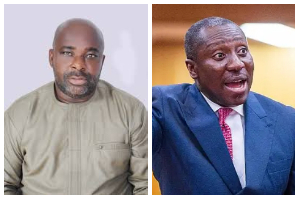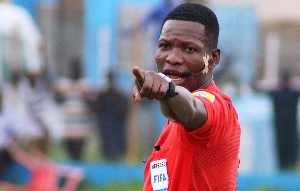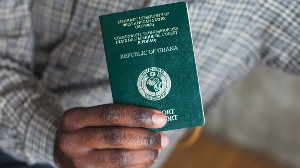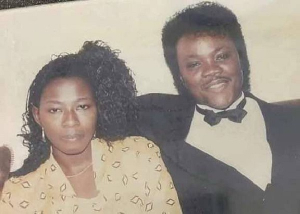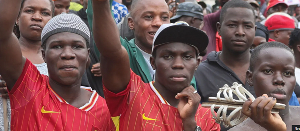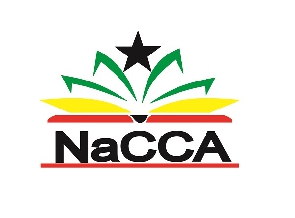Where is National Security (in the face of palpable threat to Ghana's peace, security and stability)?
I have no doubt that the National Security apparatus of Ghana is at work and they give daily briefings to the President of the Republic. But I do wonder if National Security has been briefing President Mahama about the palpable anger among a cross section of Ghanaians that may be waiting to explode, posing serious threat to the peace, security and stability of the country. President Mahama's recent admonishing to newly sworn-in ministers seems to go some way to appreciating the anger out there. The President is quoted as saying, "Too many people have complained of arrogance in some of our appointees. We need to remember that we serve at the pleasure of our people." That's good acknowledgement from the President, but several previous comments from the President himself and some of his ministers and party communicators suggest to me that they just don't have a clue Ghana is sitting on a time bomb. Let me explain.
When growing up as children, there was nothing more painful and psychologically and emotionally damaging than being beaten up and also being stopped from crying. You sob, you're angry and bitter, and bottle it all up inside you. You wish you were big enough to be able to fight back against whoever is oppressing you. Psychologists encourage bereaved people to let out their emotions by crying out, if they so wish. Many professional therapists believe letting out steam is better than bottling up emotions. So I am not surprised, and actually I am quietly relieved, that for the first time in my life, I am witnessing an unprecedented level of anger and insults on social media and other online media platforms – all directed at the President and his government appointees. Don't get me wrong. Culturally and socially, it is wrong to insult each other, let alone the President of the Republic of Ghana. It is even a misdemeanour and against the criminal laws of Ghana to do that. It wasn't like this just a few years ago. I am scared for this country. If the anger being expressed on these platforms is anything to go by, then I fear for the day something will trigger a flashpoint. If National Security is aware of this level of anger, they should be advising the President and his ministers to watch how they respond to the complaints and criticisms of the public, in the face of extreme economic hardships and Dumsor. Nobody begged the President to take up the job. He begged the electorate to give him the job because he believed he could give them a Better Ghana. If the economy has not as yet turned out the way people expected and they complain, the least they deserve is to be told to shut up, amid all sorts of insults (like calling women protesters "prostitutes", et cetera).
We in Ghana tend to pride ourselves as being peaceful and non-violent. Spare me that self-indulgence. I know the socio-political dynamics are different but didn't Ivorians once consider themselves peaceful? And if National Security has been following online discourses, they would know that there's a heightened level of anger and bitterness not only at the current economic conditions and Dumsor but also at the level of corruption and arrogance amongst the ruling elite. In many Arab countries, there had been a lot of suppression of the people. Culturally, many young people could not express their frustrations with the social, cultural, political and economic situation of their countries. Their ruling elite was untouchable. But it all changed on December 17, 2010 with Mohamed Bouazizi's self-immolation in Tunisia. The rest is what we are now witnessing across the Arab world. We have recently witnessed a lot of violent confrontations between police forces in several US states and largely black and minority populations. It is a culmination of several decades of frustration and feeling of discrimination that they have bottled up. Now they would react violently to every single incident that they consider borders on discrimination. The violent demonstrations in Greece had its roots in economic difficulties facing the population as well as frustration with the political elite. Several countries in South America have also experienced different levels of protests and upheavals in recent months and years. If National Security will look hard at the factors underlying the spark of the Arab Spring in Tunisia and all the other upheavals across the world, they would realise an uncomfortable truth: that those factors are very much present in Ghana today. People are venting out their anger on social media, which is good. But the threat does not go away as long as the underlying factors remain unchanged.
In the past, National Security has moved to pull down security posts belonging to the University of Ghana. We have seen our National Security busily engage themselves with what people consider as petty issues. I believe the current climate in Ghana poses a much more serious challenge and they should not be found wonting. And don't be surprised if by writing this piece, I get picked up by National Security to answer questions. In the past, people have been harassed for saying or writing less serious stuff. People have been arrested by National Security for causing fear and panic, using a 1960 law. But I am a worried Ghanaian. I live in Ghana; I have my family in Ghana. I have nowhere to run to in case of any upheaval. It would be irresponsible on my part to hide my fears and allow "the thing that I greatly feared" to come to pass. My mouth is not God. Let National Security sit up and tell the government to either better manage the economy or the communication with the people or both.
Kwaku Antwi-Boasiako
Accra
Opinions of Wednesday, 20 May 2015
Columnist: Antwi-Boasiako, Kwaku


